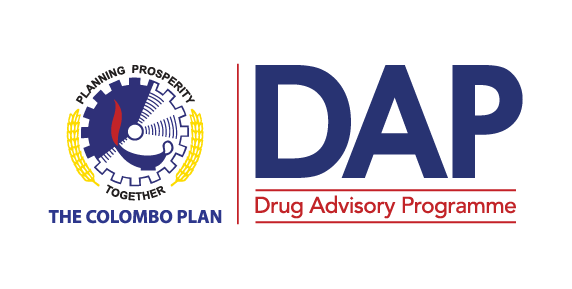Universal Curricula
UTC Basic Level consists of eight courses that cover the broad spectrum of addiction treatment. It is designed to ensure that addiction practitioners develop a balanced perspective of the principles relating to both the science and art of addiction treatment. Each course is intended to enhance the knowledge, skills and competencies of addiction professionals, as well as promote evidence-based practice for the enhancement of service delivery and treatment outcomes.
UTC Advanced Level is a set of 14 courses, developed to provide a more comprehensive and theoretical foundation in the clinical practice of substance use disorder treatment. It is a specialised training course that aims to provide an in-depth continuing education with the latest information and skills-based activities to further enhance the capacity of the treatment workforce and standardise the quality of care and services they provide for their clients.
This curriculum is designed to educate substance use prevention practitioners on the science, knowledge, skills, and competencies associated with the implementation of evidence-based prevention interventions in various settings such as family, school, workplace and community. This training series is designed to meet the current demand for an evidence-based curriculum for substance use prevention that would complement the existing Universal Treatment Curriculum for Substance Use Disorders (UTC) for addiction treatment professionals.
This curriculum is designed to develop provider skills in delivering culturally responsive prevention and treatment services for LGBTQ populations. This training will provide participants with an overview and understanding of the considerations that health providers should take into account to provide inclusive services aimed at people with diverse Sexual Orientation and Gender Identity (SOGI) with a particular focus on the treatment of disorders due to the use of substances.
WISE was created to increase understanding of women’s unique treatment needs and how to address them through practical knowledge and techniques. The four-course curriculum specifies how treating women for substance use disorders differs from treating those of men, and how to respond to women’s needs appropriately. It offers participants the tools and strategies to identify, assess, and treat women for substance use disorders with the goal of improving and optimizing outcomes and sustaining recovery.
CHILD provides treatment providers with the tools they need to identify, assess, and treat children with substance use disorders (SUDs) using age-appropriate interventions and methodologies. It is a six-course training programme that responds to the needs of children and their caregivers impacted by substance use and life circumstances of various social, cultural, economic, and political situations.
RSS helps social workers of the community to create the groundwork necessary to facilitate programme acceptance and community participation, and build a successful programme in prevention and treatment, with a focus on continuing, long-term effects. It also helps outreach and treatment workers to develop a range of outreach services and treatment camps to reduce the risks of drug use and improve health, and well-being, for substance users in rural and isolated areas.
ATI constitutes an innovative treatment model that focuses on the effectiveness of reducing the risk of criminal recidivism, providing effective treatment of problematic drug use and assuring adequate social integration. It increases treatment opportunities in the community for people with substance use disorders under the jurisdiction of the justice system who can safely receive this intervention without the need for incarceration. In doing so, ATI supports recovery and social integration of the individual and promotes the overall health and safety of the community.
This curriculum consists of two stand-alone courses: the Recovery Allies (Allies Link and Lend Inventive Engaging Support) Model and the PEER (Peer Experiences Empower Recovery) Model. Both courses focus on equipping participants with core competencies and skills to work as a recovery support professional. PEER is designed for those individuals who themselves are in recovery from a substance use disorder and the other is for those individuals who do not identify as being in recovery.
